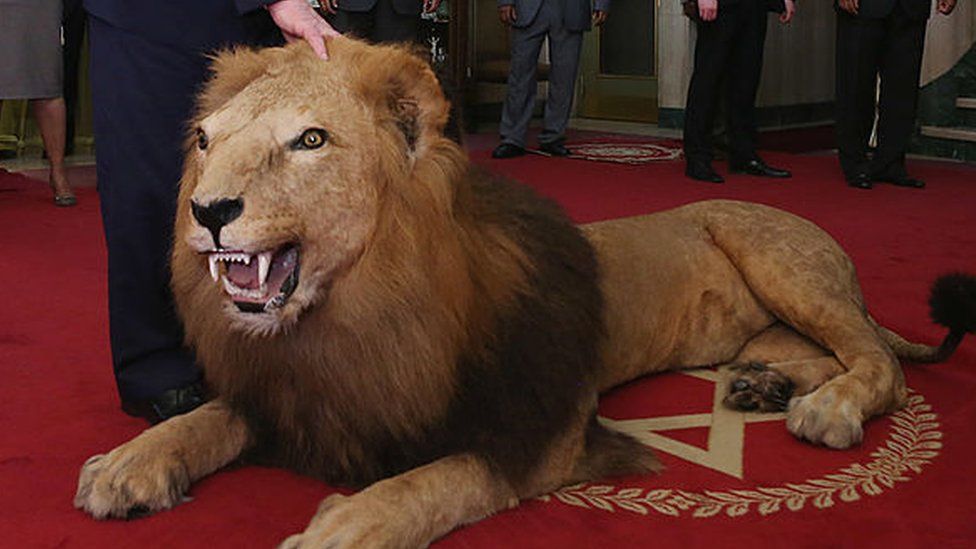ARTICLE AD BOX
 Image source, Getty Images
Image source, Getty Images
Animal trophies, many from hunts in southern Africa, are brought into the UK each year
By Jennifer McKiernan
BBC political reporter
Plans for a ban on the import of animal hunting trophies will return to the Commons later.
The body parts of lions, elephants and zebras killed for sport would no longer be allowed into the UK under a new law proposed by Labour MP John Spellar.
This is the third attempt to get such imports outlawed, following a Tory manifesto commitment in 2019.
But critics say UK MPs should not interfere, as paid-for hunting finances efforts to combat poaching.
Up to 25,000 animal parts have been brought into the UK as hunting trophies since the 1980s, according to the database of the Convention on International Trade in Endangered Species (CITES).
The all-party parliamentary group for banning trophy hunting says the CITES figures show numbers have been "increasing steadily" and include about 5,000 endangered species.
The government first brought forward a ban as part of its Animals Abroad Bill in 2021, but ditched it in May 2022.
Conservative MP Henry Smith then put forward his Hunting Trophies private members' bill with government backing, but that also failed last November when it ran out of time in the House of Lords.
Now Labour MP John Spellar has sponsored the legislation as a second private members' bill.
However, the High Commissioners of six African nations are opposing a UK ban on imports, because they say paid-for hunting funds their anti-poaching efforts.
'Virtue signalling'
Namibia's environment minister Pohamba Shifeta said the plans were "alarming" and could negatively impact communities relying on tourism.
Maxi Louis, director of the Namibian Association of Community-Based Natural Resource Management Support Organisations, accused MPs of meddling.
The continent's nations had "gained their independence from the colonial powers" a century ago, she said, but "when it comes to our wildlife, the British Parliament keeps forgetting".
Highlighting that the UK had not had any dangerous wild animals for hundreds of years and was considered "nature-depleted" by broadcaster and naturalist Sir David Attenborough, she added: "By contrast, wildlife in Africa is flourishing because of our management.
"We ask for no more virtue signalling. It is arrogant, ignorant and racist."
However, Mr Spellar told the BBC the law was "well overdue" and he believed had enough support to become law.
When asked what he thought of accusations the draft law was racist and neo-colonial, the MP for Warley said: "This represents the views of Parliament and it represents the views of the British people, who want nothing to do with this vile trade.
"Would I rather people shoot animals with cameras and not crossbows and rifles? Yes, but this does not hold extraterritorial jurisdiction. It relates to Britain and what we bring into this country.
"I think there are some business interests involved and I'm not sure how much of that money goes to ordinary people."
Private members' bills are introduced by backbench MPs, but if they do not have government support, they are unlikely to become law.
The Department for Environment, Food and Rural Affairs declined to comment on its position ahead of the debate.
Related Internet Links
The BBC is not responsible for the content of external sites.

 9 months ago
37
9 months ago
37








 English (US) ·
English (US) ·